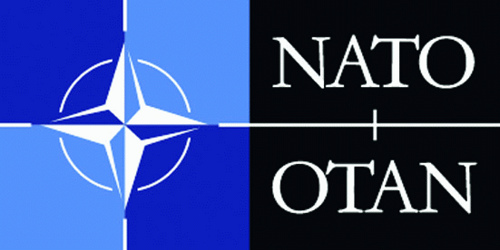
Lost amidst the welcome news of British-French cooperation on military cost-sharing in some tough talk from their ministers of defense on NATO.
Last week, I noted that the FT‘s superb reporter Ben Hall buried the lead, waiting until the 13th paragraph of a story to pass along Liam Fox’s pronouncement that, “We cannot accept a bloated Nato organisation that is consuming far too much money for the output we are receiving. The fat needs to be trimmed away.”
This morning, my colleague Jorge Benitez forwarded another report of the meeting from AFP‘s Dave Clark that saves an even more damning version of the quote for the 19th and final paragraph: "The fat needs to be trimmed away, because we’re not in NATO as a job creation project. We are there to ensure that it delivers what we need in terms of our combined security."
Both reports indicate that Fox’s French counterpart, Herve Morin, shared these views.
So, the senior defense policymakers of the two most significant military players in Europe think that the tiny portions of their tiny defense budgets going to NATO is mostly wasted? Now, perhaps having spent the last three years ensconced at a pro-NATO think tank has clouded my judgment but this strikes me as A1, above-the-fold, banner headline news. At very least, it deserves a sidebar or off-lede treatment of its own. But the average news consumer would surely have stopped well short of that point in the stories, once the writers started delving into the arcana of budgeting history.
I can only gather that reporters who follow European MODs around for a living simply know intuitively that they’re fed up with NATO or otherwise heard this as throat clearing and don’t find such statements the least bit remarkable.
From this side of the Pond, where hardly anyone even bothers to talk about NATO at all, it’s enough to raise alarm bells.
Certainly, American officials in the know agree that the NATO bureaucracy is bloated and that we have far too many facilities tucked away in places that make no military sense for purely political purposes. And NATO insiders have been fighting for years to solve that problem with very little to show for their efforts.
At the same time, however, we’re talking about annoyances here, not substance. If a token headquarters here and a needless center for excellent there helps get buy-in from skeptical politicians and publics at the cost of a few million dollars and some minor inefficiencies, it’s hardly the end of the world. It’s perhaps even defensible.
Regardless of where one comes down on that debate, it’s hardly the most fundamental one facing Alliance leaders. Of far greater concern is a lack of consensus on what it is that NATO is supposed to do, wide variation in political will, and spotty commitment to meeting national commitments to the organization. Even if we get past those hurdles to talking about matters of organizational charts and bureaucratic procedures, reform of NATO’s decision-making procedures is certainly higher on the To Do list.
James Joyner is managing editor of the Atlantic Council.
Image: NATO-OTAN.jpg
